Intentional design
My co-creation approach combines the best of two worlds: Participatory Action-Research (PAR), and Transdisciplinary (TD) Sustainability Science.
My approach is an “eclectic bricolage” of different approaches and methods, with thoughtful and intentional design at its core.
Whether co-creative processes are meant for data collection, for education, for community building, or for organizational leadership, there are key questions that always inspire my work:
Why are we doing this? What needs are we serving?
I follow a purpose-driven and needs-based approach, inspired by Design Thinking.
Who and what is invisible, apparently marginal, and deserves a voice?
I believe in deviance (not dominance) as one source of transformative change; I try to practice justice (intraspecies; gender; intragenerational; etc.) through the methods I design and the spaces I host, inspired by feminist radical epistemologies.
What’s already there? And what gives life?
I use an appreciative stance, building from existing assets and resources, rather than gaps, following Appreciative Inquiry.
What will work in that particular moment, with specific beings, in a specific place and space?
My work is embedded and situated. The knowledge created is not abstracted from the context and its people; methods and aesthetics embed and evoke material and affective elements of the place; food (when there) is locally and responsibly sourced; local and anecdotal knowledge is valued.
What will make the process effective and impactful, as well as engaging and enriching?
No learning (and thus no co-creation) can be truly effective if it is only based on rational ways of knowing, and on flat, low-energy discussions.
That’s why we need visual, experiential, and arts-based methods. And rituals. And genuine conviviality.
Yet, we also need analytical tools, and structures that make people converge and strategize. Combining all the above in a coherent and generative flow is a passion and a mission for me.
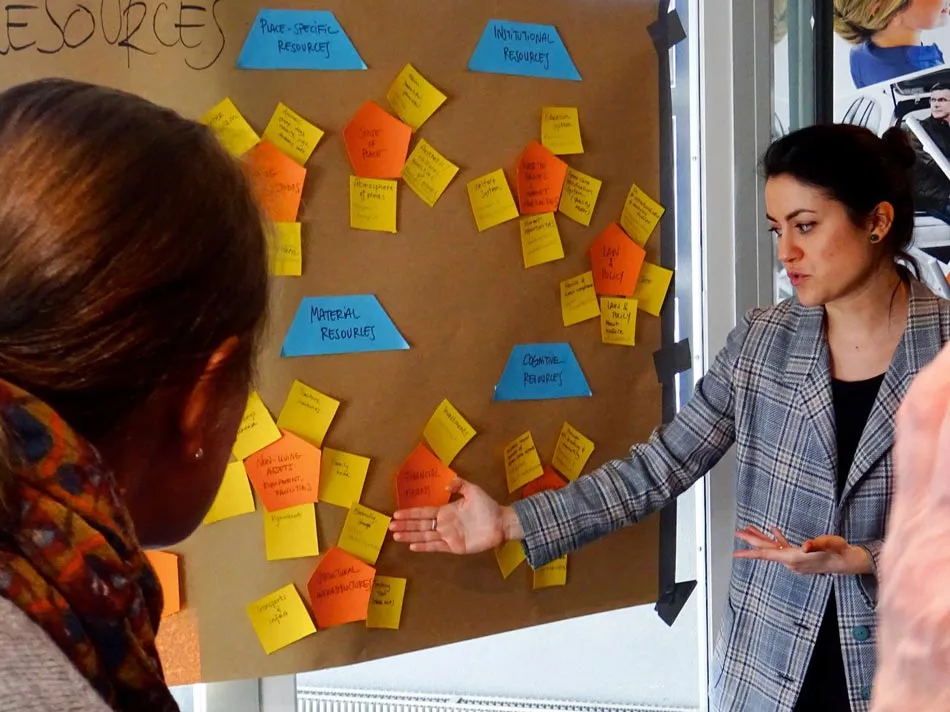
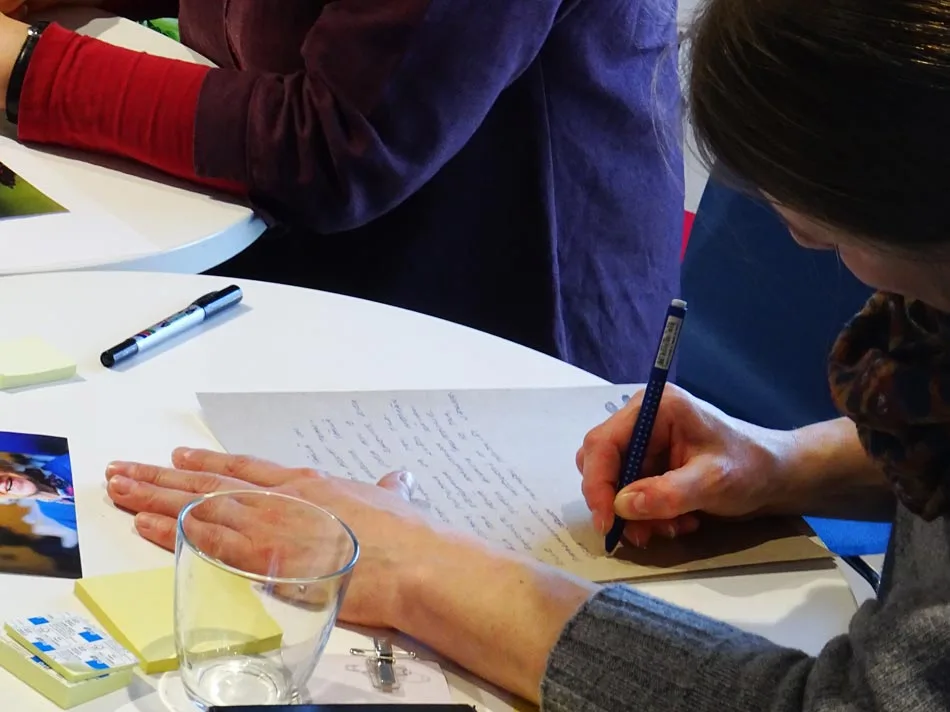
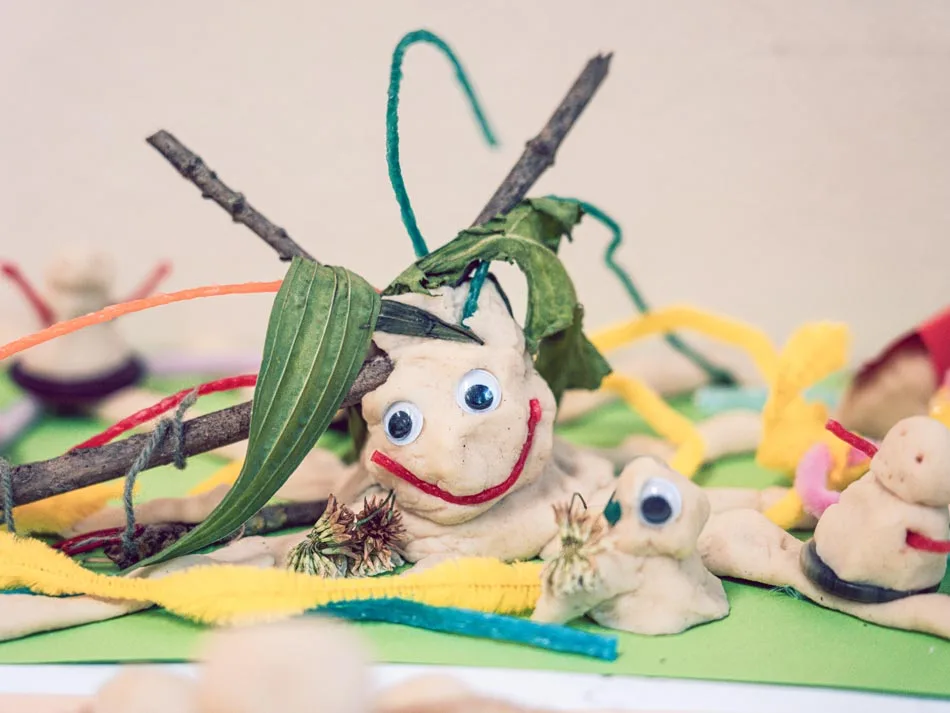
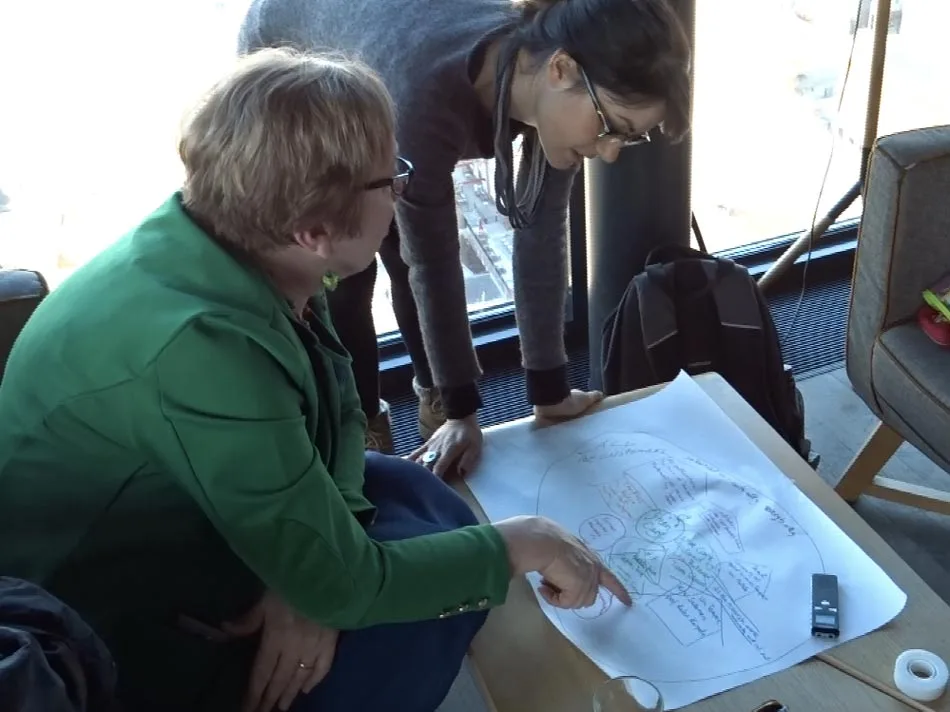
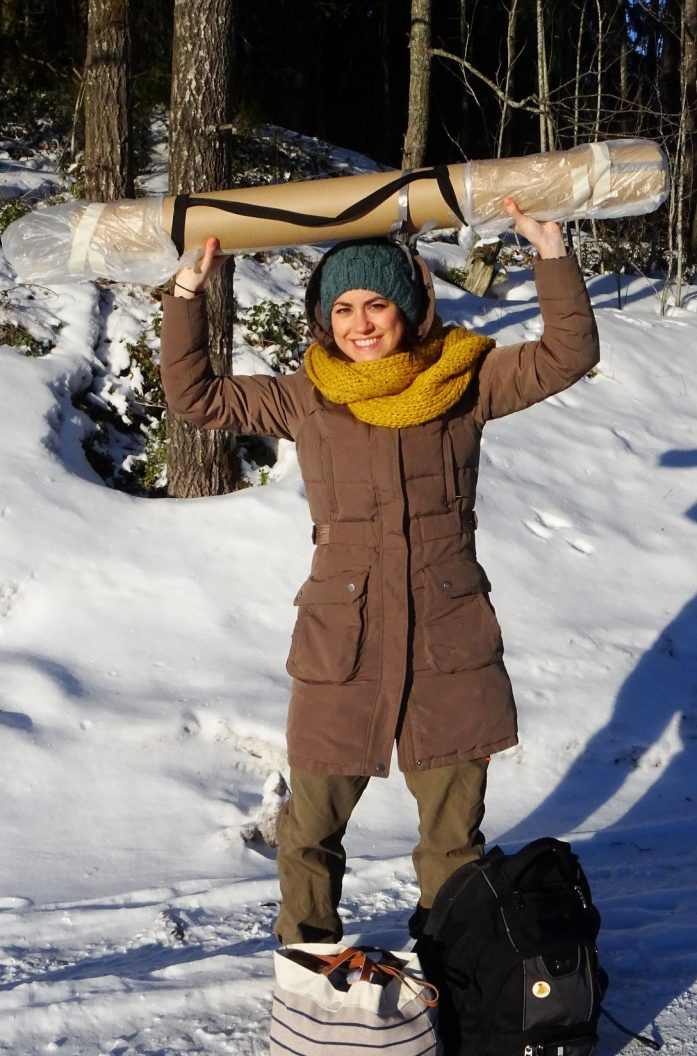
A selection of methods. From left to right, top to bottom: resources mapping, Letters from the Future, quick prototyping, participatory mapping, carrying materials for a visioning workshop in rural Finland.
A selection of methods. From top to bottom: resource mapping, Letters from the Future, rapid prototyping, participatory mapping, transporting materials for a visioning workshop in rural Finland.
Methods
Below is a list of participatory, co-creative, and qualitative methods I have used in my work, both online and in presence.
- Backcasting
- Causal Layered Analysis (CLA)
- Circle of Objects
- Delphi survey
- Focus group discussion
- Future Wheel
- Future headlines (with or without collage)
- Guided meditation
- Haiku harvest
- Letters from the future
- Open Space Technology
- Participatory mapping
- Photo elicitation
- Photovoice
- Questionnaires
- Quick prototyping
- Resources mapping
- Role play
- Seeds of Good Anthropocene
- Semi-structured interviews
- Silent conversation
- Stakeholder mapping and analysis
- Storytelling
- SWOT analysis
- Three Horizons
- Timeline of change
- Venn diagram
- World Cafè
And many other creative and arts-based methods from our Re.imaginary database, and from other sources of inspiration.
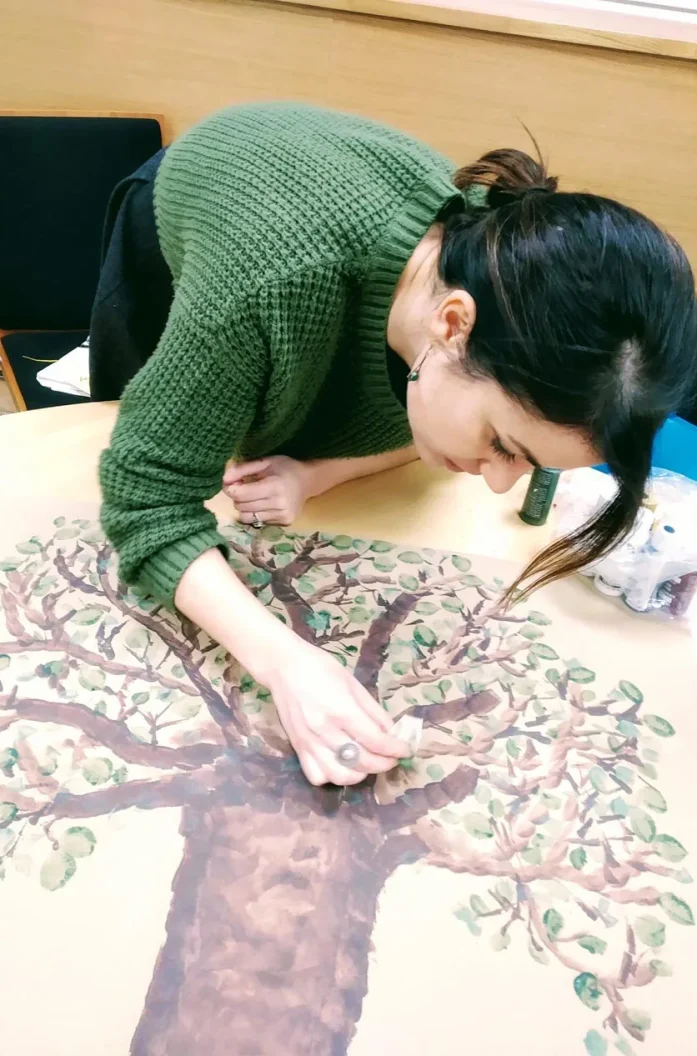
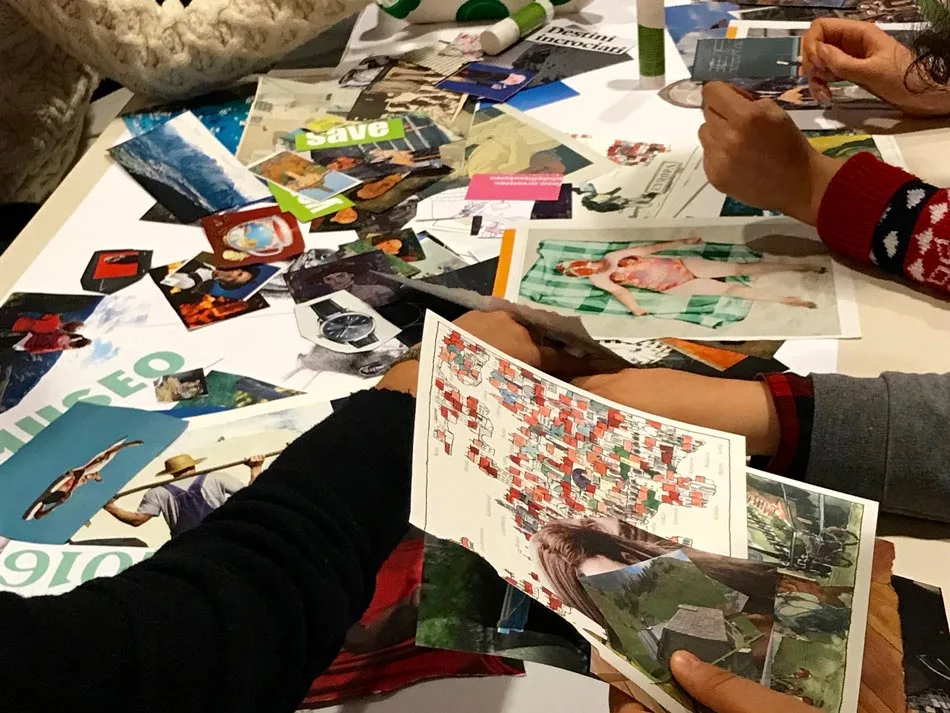

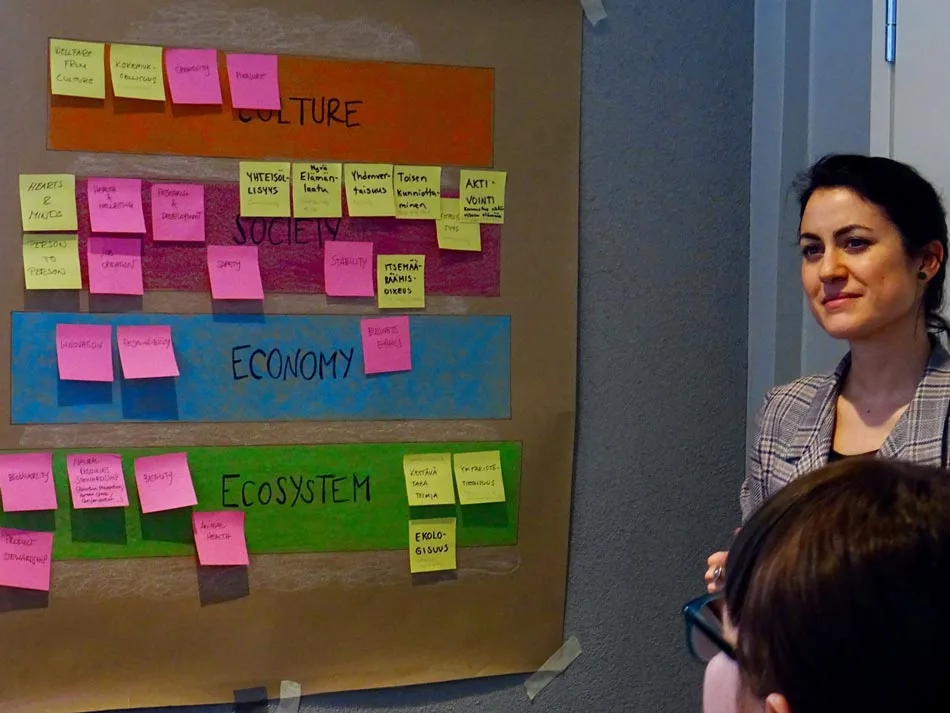
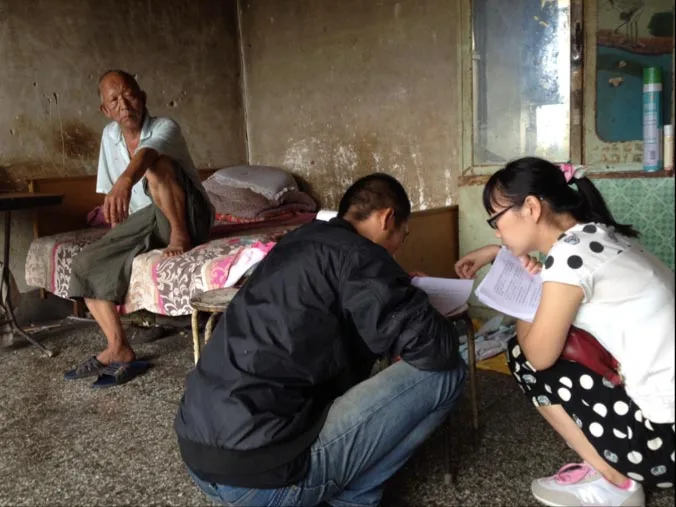
A selection of methods. From left to right, top to bottom: Vision Tree, collage materials for Headlines from the Future, workshop session with Photovoice, values mapping on system’s dimensions, households survey questionnaires in rural China.
A selection of methods. From top to bottom: Vision Tree, collage materials for Headlines from the Future, workshop session with Photovoice, value mapping on system dimensions, household survey questionnaires in rural China.